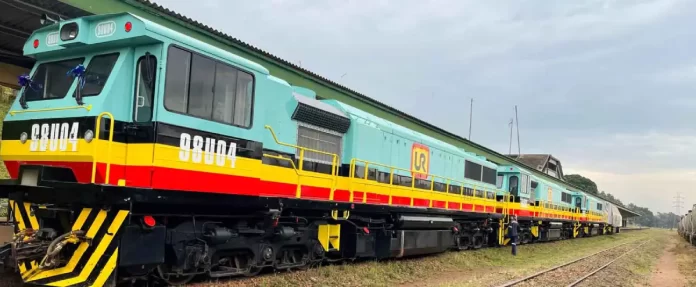Government Move to Rehabilitate Countrywide Railway Connectivity
By Birungi Kezia
The government has commenced rehabilitation works on major rail lines across the country in a latest move to improve trade and the movement of goods across the tension.
Recently, the Ministry of Works confirmed that rehabilitation works on the Toror-Gulu line, the Tororo-Namanve, and the Malaba-Kampala railway lines are ongoing.
“In an effort to bolster rail transport as a means of ensuring a robust multi-modal transport system in the country, the Government of Uganda has embarked on a project to rehabilitate the 234km stretch of the Namanve-Tororo rail section,” the Works Ministry said.
The government of Uganda, through Uganda Railways Corporation (URC), has engaged China Road and Bridge Corporation to undertake the rehabilitation works for the Tororo-Namanve railway section.
According to a statement by URC, the project cost is USD 51.8 million with a duration of 16 months, including the defect liability period.
The railway is expected to have a capacity of 4 million passengers and 5 million tons of cargo per year and a number of stations along its route, including Kampala, Jinja, Namayumba, and Malaba.
The rehabilitation works will be limited to the sections of Namanve-Tororo (222 km), including the Jinja pier line and reinstatement of the pier yard (3.7 km), for a total track length of 234 km that includes the crossing lines (8.3 km).
The project scope shall include drainage improvement, track formation improvement, girder bridge repairs, ballasting, supply and fixing of track fasteners, re-sleeping and re-railing for priority sections, reconditioning of track components, and level crossing reconstruction.
The contractor has committed to funding the education of ten needy schoolchildren in every district through which the rehabilitation project stretches as part of their corporate social responsibility.
The following benefits will be achieved when the project is complete: creating more job opportunities, reducing passenger travel time, easing bulky transportation of goods in the region, increasing exports to international markets, and boosting tourism.















